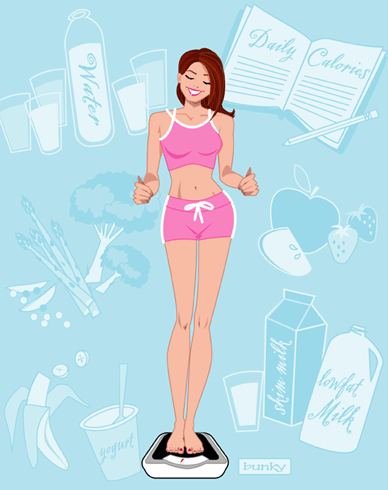 A common denominator among most companies whether it be Acai or some other juice: Pasteurization. U.S. FDA laws are the driving force.
A common denominator among most companies whether it be Acai or some other juice: Pasteurization. U.S. FDA laws are the driving force.We may not be concerned that there's only one in a million chance of getting ill from unpasteurized products, yet if we happen to be that one, our perspective drastically shifts.
When Were We First Led To Pasture, or is it Pasteur?
As most of you know, pasteurization has been a part of our food system for eons. Louis Pasteur, a french microbiologist and chemist developed the process, and that's how it came to be known as pasteurization. Its first testing was completed April 20, 1864. He had no idea how vast his discovery would affect the world for generations to come.
Unlike sterilization, pasteurization was a blessing at the time, as it didn't completely destroy the quality of the food or liquid. Actually, its process reduces the number of viable pathogens so they are unlikely to cause disease. Keeping it in lay terms: it is the process of heating liquids for the purpose of destroying bacteria, protozoa, molds, and yeasts (Wiwipedia).
When Did Laws Come To Pasture?
Due to tragedies, in 1996 laws were being considered to regulate standards for the production of fruit juices. From what I understand, the catalyst stemmed from the death of a young child. The child drank an unpasteurised apple juice (Odawala product) contaminated by a strain of E-Coli (Escherichia). Seventy other people were affected as well, but survived. NOTE: Odawala immediately began flash pasteurizing (1996).
In 1999 and 2000, unpasteurized orange juice contaminated with salmonella bacteria caused hundreds of people in the U.S. and three Canadian provinces to be sick. The 1999 outbreak contributed to one death.
Raymond Formanek Jr. Director, Communications Staff
U.S. Food and Drug Administration, said,
Under the new rule, juice processors are required to follow Hazard Analysis and
Critical Control Point (HACCP) principles, a food safety program developed by
NASA to prevent food-borne illnesses among astronauts. Manufacturers using HACCP
systems conduct science-based analyses of food production processes, locate
where the hazards can occur, take steps to prevent problems, and respond rapidly
to problems. FDA inspectors will do spot-checks to ensure that the processors'
HACCP systems are working. Unpasteurized, packaged juices produced and sold at
retail establishments must carry a warning label. Large companies have a year
from the publication of the regulation to implement HACCP programs. Small
companies must comply within two years after publication, and roadside stands
and other very small operations must comply within three years. The FDA
estimates that between 16,000 and 48,000 juice-related illnesses occur in the
United States each year. For more on juice safety, see the FDA news release at www.cfsan.fda.gov/~lrd/hhsjuic4.html.
Temps and Times in the Pasture: How Long and Hot Does it Have to be?
From what I understand the temps and time exposed to the temps companies choose to pasteurize dictate the shelf life of the product. Therefore, when you see a product with a longer shelf life, you can pretty much count on that the temps may have been higher and the exposure much longer than that of a product with shorter shelf life.
Some Types of Pasteurizations:
HTST, high temp/short time, which gives shelf life about two weeks. UHT, ultra high temp which gives a much longer shelf life; months. Kettle past. from what I understand uses lower temps with a longer period of exposure to the heat. The product is quickly cooled down, then packaged, and sent to the store to be sold.
Recent Developments in Pasture?
- Flash pasteurization: means it has a higher temp but a shorter period of exposure to the heat.
- Cold pasteurization is used sometimes for the use of ionizing radiation (see Food irradiation) or other means (e.g. chemical) to kill bacteria in food. Food irradiation is also sometimes called "electronic pasteurization". (Wikipedia)
Do the Temps and Time Matter Out on the Pasture?
Yes. A lot, according to the experts I spoke with from the various companies. For one the higher the temp and the longer exposure, the more compromised the quality of the product is. Quality as in taste, yes but also in the potency of the nutrients. Example, the antioxidants are compromised.
While pasteurization has saved lives, many feel it has been overly used in our food processing. Where do we draw the line? With progress comes great comfort to our lifestyle. However, coupled with progress comes adverse effects. There is no way around it. Resident evil, of some sort? Perhaps.
Yes, we are damaging the integrity of our foods with the need to preserve them for longer shelf time to accommodate our busy lives. We can't have it all. We are a greedy spoiled nation. There I said it. With compromise comes great price.
So Do We Pasture In Or Out?
- As the consumer, you have to take responsibility and decide.
- There are times you might need a prod with a longer shelf life for one reason or the other.
- That's up to you as long as you make yourself aware that the product will not be as healthy or have the quality as one with a shorter shelf life.
- CAUTION: Please note that if you don't keep your product in the frig once you purchase it, you compromise its safety regardless of the pasterization.
- Awareness is the key. I know you haven't heard that from me before! Actually, I think that's my mantra # 2 or 3. Or is it #1?
- If you want fresh"squeezed" milk, grow your own cow!
- Fresh squeezed juice: get a good blender/juicer. I use VitaMix and love it. I have a friend who uses a juicer (Champion brand).
- Look for the freshest products. Guess where you will find them in the store? Certainly not in the canned-food section. Rather in the refrigerated section.
- The frozen section is a good option.
- But the best option is in the produce section. Spend most of your time and $ there.
- Look for rich color and firmness in most of your produce.
- Shop at a Whole Foods type store.
- Buy organic when you can, remembering even some of it has been compromised.
- Better yet, if you have local market or neighbor where the food is homegrown, spend your $ there.
- Plant your own little garden. Prepare to work!
Though pasteurization isn't involved, this reminds me of a certain type of bread I was buying. For a time we weren't using bread much, and I neglected to throw the loaf away. Over a month later, the bread still looked the same. Goodness. That rattled me. Believe me, I'd much rather found that it had mold on it. That's the day I quit buying bread. And I began to make my own. I'll take my mold over their preservatives any day!
Copyright © 2008 by Pilates Worx 4 Life. All rights reserved. Check out website: www.pilatesworx4life.com




 Enjoy
Enjoy











